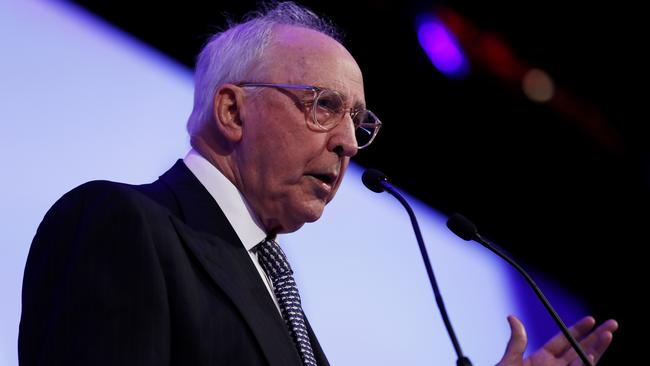
Keating said Trump’s instincts were to avoid military confrontations and, above all, any military showdown with China. While this was good and contrary to the outlook of the US east coast foreign policy establishment, Trump lacked the ability to construct a strategic model for a new world now “fundamentally anarchic”.
READ MORE: Paul Keating’s blast: foreign policy on China ‘lacks realism’ | Get tough on China: Bannon | Media ‘up to its ears in fanning fears’ | ‘Savour’ chance of doing deals | Labor ‘more hawkish’ against Beijing | MPs’ ban a ‘public relations failure’ | Pressure to put patrionism first | ‘Nothing to fear’ from communist influence
Josh Frydenberg had a different perspective but went half-way with Keating. The Treasurer lamented Trump’s trade war with China, declaring there were “no winners, just losers” — a lethal criticism — and defended the rules-based trade system now under assault.
But Frydenberg believes the US remains strategically committed to the region and refused to subscribe to Keating’s declaration that Pax Americana was passing into history.
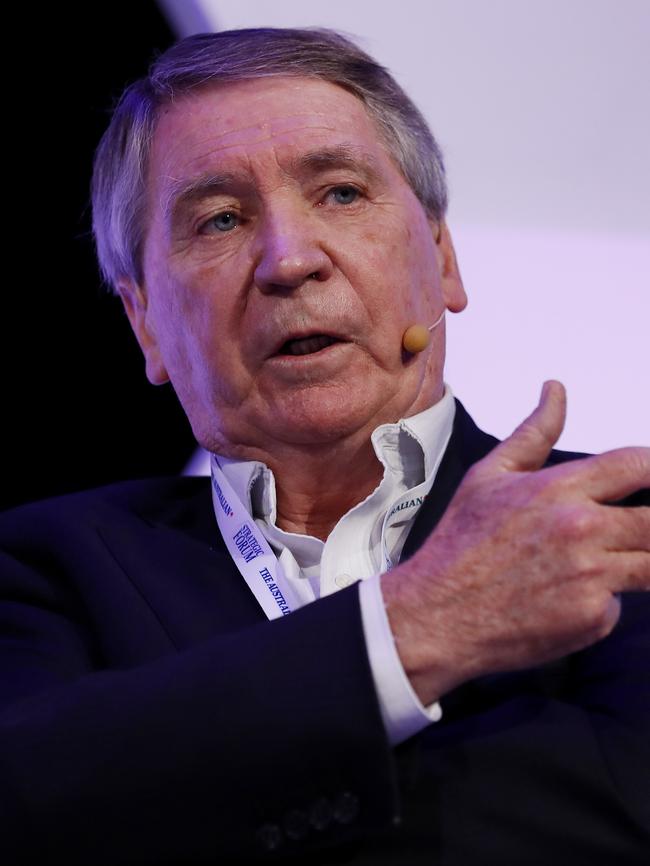
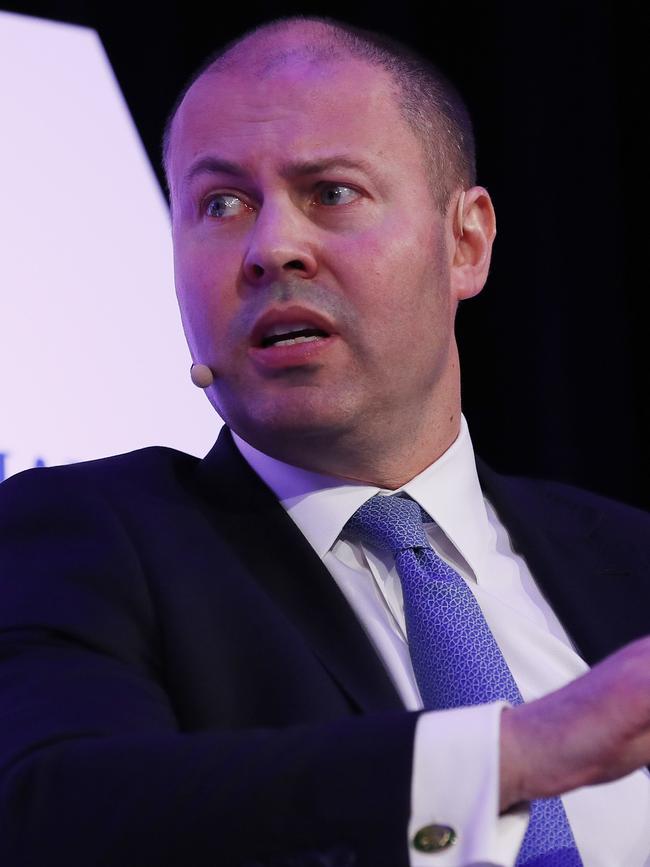
The Australian’s Strategic Forum yesterday on relations with China was filled with a blend of bipartisanship amid sharp differences. While Keating said Australian government policy was failing on China — with ministers lacking “strategic realism”, security agencies hijacking policy and the media abandoning any sense of balance — former foreign and defence policy chief Dennis Richardson offered a dissenting realism.
Richardson said that a “few missteps” aside, the government had China policy pretty right. He said there was consistency between the major parties on China. Had Labor won the last election, he doubted China policy would be significantly different. Speaking as a former practitioner, he said criticism was “easy” and his real point was obvious: the critics were weak in explaining exactly how China policy should be reset.
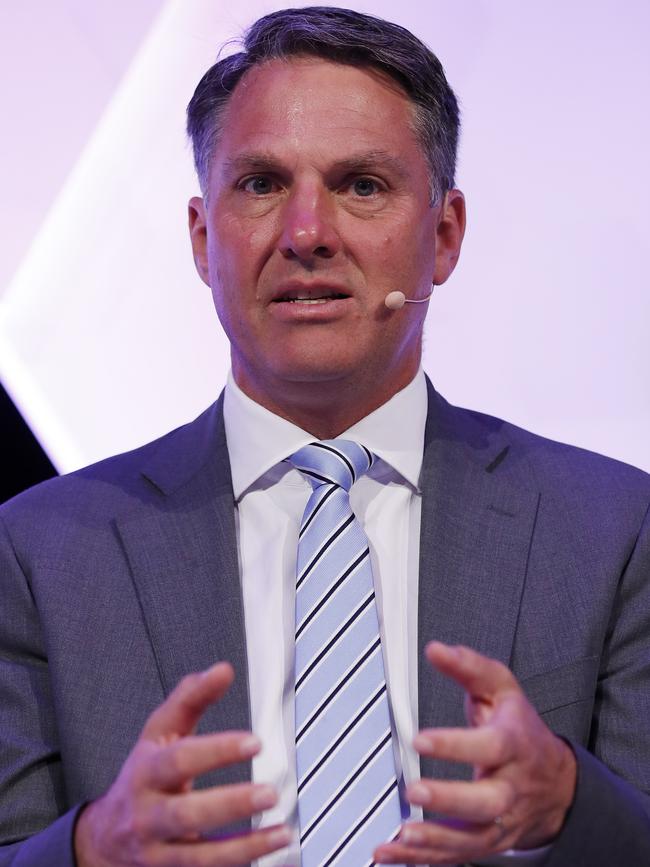
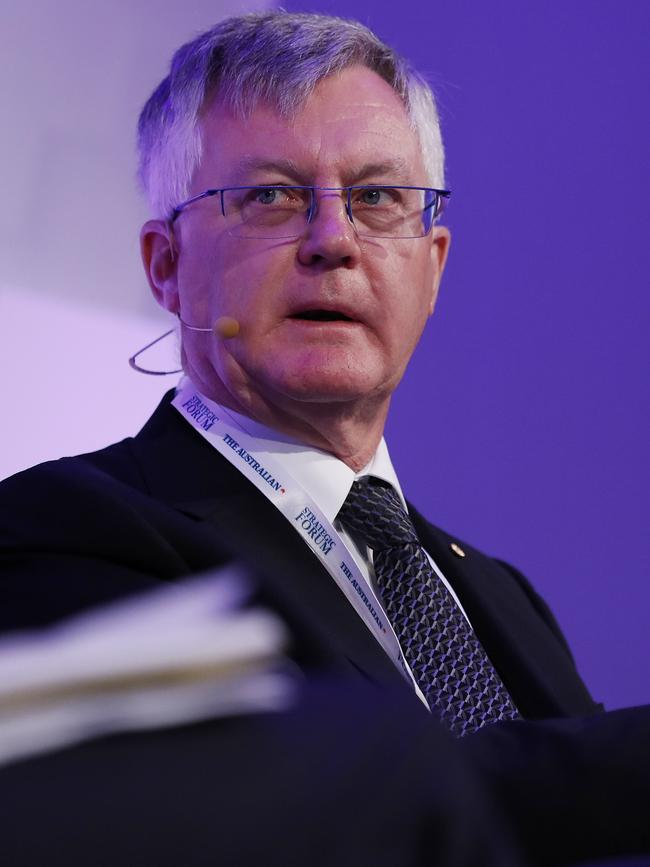
When ALP defence spokesman Richard Marles called for a “guiding philosophy” to govern relations with China, Richardson’s retort was “grand plans don’t exist in the world” and challenged Marles to explain what he meant.
Former Department of Prime Minister and Cabinet head Martin Parkinson offered his own brutal realism when he defined the core issue: Australia was engaged in a negotiation with China about our future sovereignty.
He said the economic growth of China was the best thing for the world since World War II but China, as a rising power, was trying to hive off Australia from its US alliance partner.
Parkinson disputed conventional wisdom that “China has us over a barrel”, pointing out that China was also a beneficiary from its economic partnership with Australia.
Frydenberg said Australia must be clear and consistent when dealing with China. Disagreement over foreign investment, human rights and other questions was inevitable but Australian consistency and a broad view of the relationship was the key to advancing the national interest short of upending bilateral ties.
There was wide agreement that China’s ban on the entry of two federal Liberal backbenchers was immature and counter-productive. Keating said the challenge for Australian policy was fixing “a set of arrangements which engages China but which also prevents China from dominating the region”. He said a prudent policy would be to encourage the US to stay in the region but give China “the space to participate”. Australia should be actively involved in creating a web of co-operative regional ties but steer clear of any US assumption that China’s rise was incompatible with American interests.




This was a forum dominated by contentious, brutal realism. Paul Keating began with the most brutal warning of all — that Donald Trump and his “America First” selfishness is the future, not an aberration, and his “intuitive stance” is where successor presidents will take the US anyway.